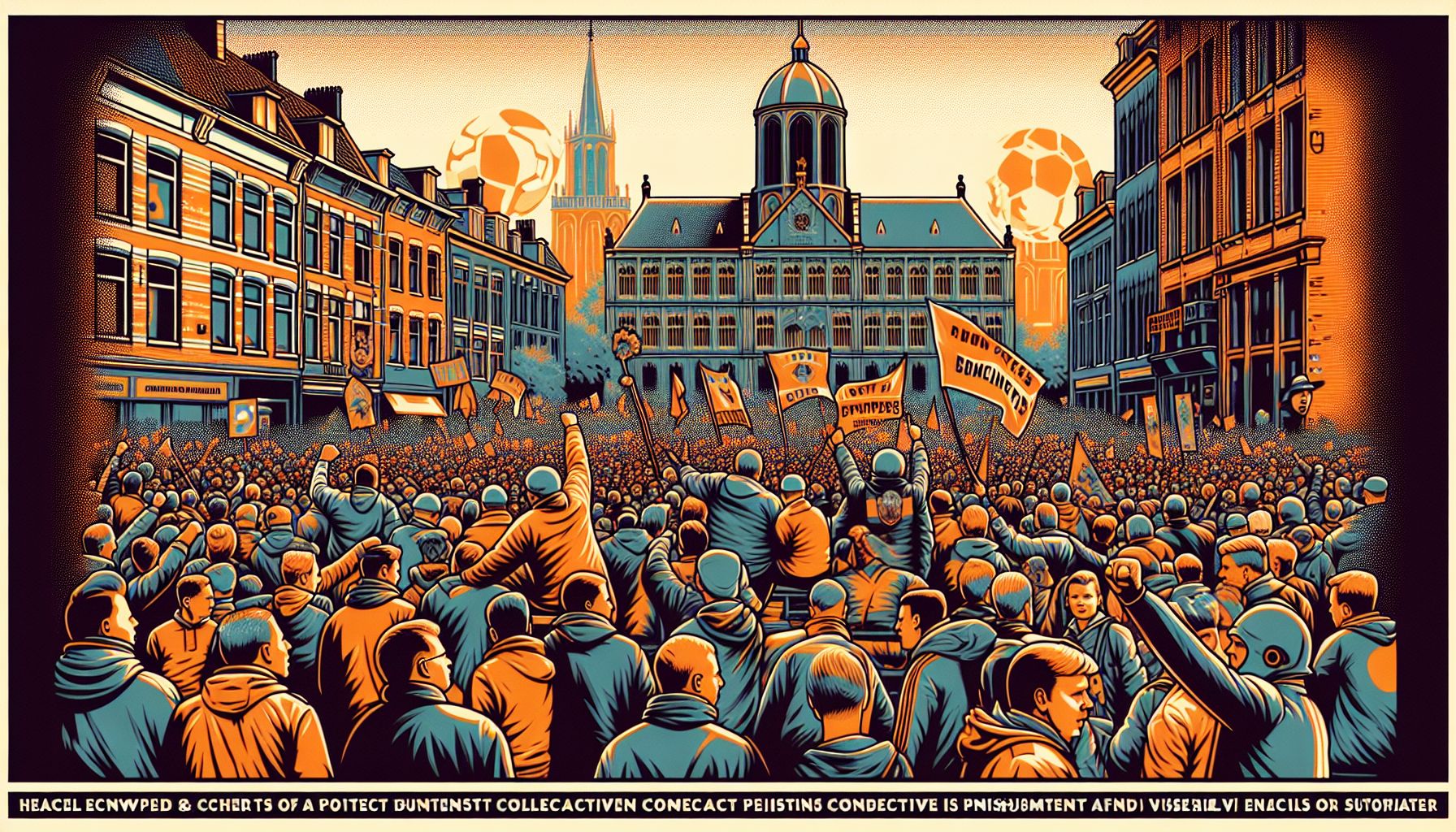FC Utrecht Fans Protest Collective Punishment

Utrecht, Monday, 12 August 2024.
Hundreds of FC Utrecht supporters rallied against ‘naive and politically driven’ collective punishments imposed by authorities. The protest, attended by club owner Frans van Seumeren, highlights growing tension between fans and local officials over fair treatment of supporters.
Background of the Protest
Approximately 200 FC Utrecht supporters gathered in the city center of Utrecht on Monday, 12 August 2024, to protest against collective punishment enforced by Mayor Sharon Dijksma. The demonstration took place on the same day as FC Utrecht’s first match of the season against PEC Zwolle, from which supporters were banned. This restriction followed violent incidents that occurred in May after a match against Go Ahead Eagles, where riots led to injuries among police officers and the firing of warning shots [1].
Details of the Demonstration
The protest saw fans march to Ledig Erf, carrying flags and a banner that read ‘Tegen alle collectieve straffen’ (‘Against all collective punishments’). Slogans such as ‘Sharon Dijksma, rot maar lekker op’ (‘Sharon Dijksma, get lost’) and ‘Sharon, de stad uit’ (‘Sharon, out of the city’) were chanted multiple times. FC Utrecht owner Frans van Seumeren attended the protest, criticizing the decision as ‘naïve, averechtse, politiek gedreven beslissing ten koste van de echte supporters en de club’ (‘naive, counterproductive, politically driven decision at the expense of the true supporters and the club’) [1].
Context of the Ban
The controversy stems from the aftermath of the FC Utrecht vs. Go Ahead Eagles match in May, which escalated into riots. According to Mayor Dijksma, projectiles such as large stones and fireworks were hurled at police, resulting in serious injuries, including one officer who was hospitalized with a loss of consciousness. These violent incidents led to the decision to ban FC Utrecht supporters from attending the opening match of the season against PEC Zwolle [1].
Reactions from Supporters and Officials
Supporters argue that the majority who did not engage in violence should not suffer for the actions of a few. Teun den Hartog of the supporters association called the decision ‘absurd,’ emphasizing that ‘a few people stepped out of line, and they should be punished, but not the majority.’ City officials stated that individual measures are also being taken, including stadium bans and the identification of fifty suspects involved in the May incident [1].
Conclusion of the Protest
The demonstration concluded without any incidents of violence, showcasing the supporters’ demand for fair treatment. As the football season progresses, the tension between fans and local authorities over collective versus individual punishment is likely to remain a critical issue, drawing attention to how justice and security are balanced in public events [1].

